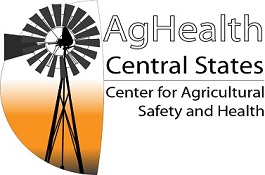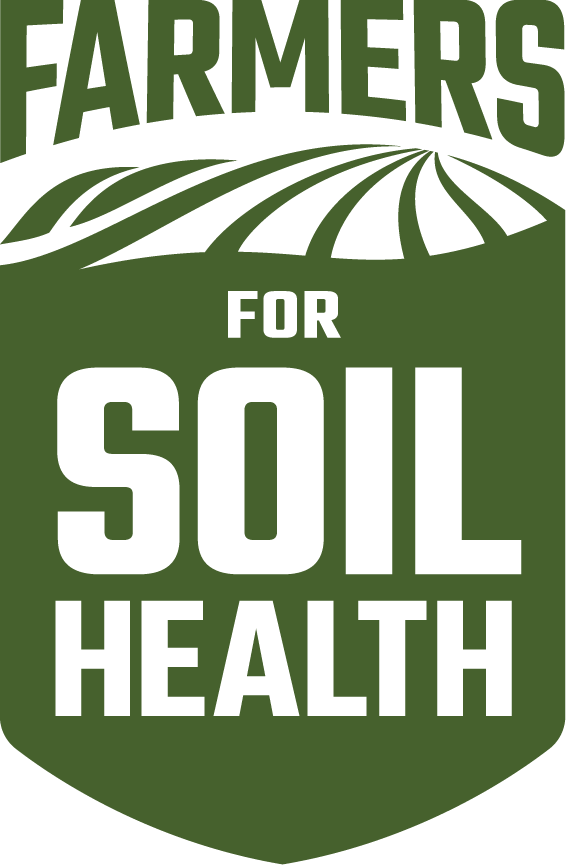AgriSafe Learning
*Click on the title of each webinar to register! You must create an account in the AgriSafe Learning Lab to access the recordings.*
NFSHW 2025 Training Topics
Continuing Education
NFSHW25: Road Safety and Agriculture As We Age
Agriculture is one of the most hazardous occupations with 1 in 5 agriculture producers being affected by a disability. Transportation incidents, which include tractor overturns and roadway crashes, were the leading cause of death for farmers and farm workers and caused injuries from minor to debilitating. How can we prevent fatalities and injuries? The role of AgrAbility with helping farmers/ranchers to continue to work.
Continuing Education
NFSHW25: Farm Equipment Hits the Highway: Growing Risks and Smarter Solutions
As farms grow and equipment gets larger, ag machinery is spending more time on public roads, raising safety risks for everyone. This session explores how lighting, marking standards, and recent regulations can reduce crashes. It also covers emerging risks tied to trailering, longer routes, and autonomous machinery.
Continuing Education
NFSHW25: Strong Roots: Keeping Farming in the Family Through Health and Resilience
A mother-daughter team (Nurse Practitioner and Agricultural Extension Agent) shares how farm families can protect their legacy by prioritizing mental, emotional, and physical health. Drawing from their own multigenerational experience, they address farm stressors like economic pressure and isolation, offer practical coping tools, and highlight the importance of communication, resilience, and succession planning to support strong, healthy farm families.
Continuing Education
NFSHW25: Changing Our Mental and Emotional Trajectory (COMET) Community Training
COMET is a direct response to rural community members’ concern about mental health needs. COMET is a community-based intervention to activate community members and provide them with language, tools, and confidence to intervene when they notice someone around them is unwell – and before a mental health crisis occurs. COMET supports community wellness by focusing on the upstream prevention of mental and emotional health crises.
Continuing Education
NFSHW25: Communication Coaching to Support Farm Harmony Across Generations
Communication coaching is a specific program with a method that works with the members of farm teams and farm families to make decision making, goal setting, and conversations in general, better. This presentation will address generational differences, share communication teaching ideas, and discuss a specific 4-session coaching program that participants may be interested in adapting.
Continuing Education
NFSHW25: Too Young to Plow Alone: Keeping Youth Safe on the Farm with AYWG & HAYWG
This webinar will focus on practical strategies to ensure the safety and well-being of youth working on farms, using the Agricultural Youth Work Guidelines (AYWG) and the Hired Agricultural Youth Work Guidelines (HAYWG). This will underscore the importance of aligning job tasks with a child's developmental abilities, rather than age alone, to prevent injury and promote a safe working environment.
Continuing Education
NFSHW25: AgriSafe Natural Disaster Recovery Response Think Tank
Join AgriSafe for a dynamic and collaborative session focused on strengthening disaster response and recovery efforts in agricultural and rural communities. This think tank will explore existing resources, highlight critical gaps in infrastructure and preparedness, and facilitate a collective dialogue on how to build more resilient systems. Natural disasters can strike without warning, and being prepared can save lives, livelihoods, and communities. Your voice matters in shaping effective responses before, during, and after a disaster. We hope you’ll be part of the conversation
Continuing Education
NFSHW25: Confined Spaces in Agriculture
During this webinar, we will explore the dangers of confined spaces in agriculture, including grain bins and manure pits, and the hazards involved in working with each.
Continuing Education
NFSHW25: Wheels of Misfortune: Off-Road Vehicles on Public Roadways
ATVs and UTVs are widely used in rural areas but are a leading cause of injury and death, particularly on public roads where they are not designed to operate. Despite safety warnings, more communities are legalizing their use on roadways. This webinar explores the risks of on-road ATV/UTV use, design-related safety concerns, and strategies rural families can use to prevent crashes and injuries.
Continuing Education
NFSHW25: Safe Operation of ATVs and UTVs for Agriculture
Explore the leading causes of injuries and fatalities involving ATVs and UTVs in agricultural settings. Learn practical safety strategies and best practices to help prevent accidents and protect the agricultural community.
2024 NFSHW Training Topics
Continuing Education
NFSHW24: Sharing the Road: Agricultural Equipment and the Driving Public
A collision between agriculture equipment and a passenger vehicles on a roadway often result in serious injury or fatalities. Ag equipment is much larger and heavier than personal vehicles. As agriculture changes, even in rural areas, there are fewer residents that are familiar with ag equipment and may not have an understanding how the equipment on the roadway can affect them. A decision to pass, follow closely, or failure to provide space when meeting equipment on a two-lane road can have consequences. Furthermore, as metropolitan areas expand further into agriculture communities, farmers will meet even more personal vehicles in places they are not expecting them that are not aware of the precautions that they need to take when meeting or passing ag equipment.
Continuing Education
NFSHW24: Skid Loader Safety
Skid loaders are useful and versatile machines in the hands of appropriate operators. To utilize them to their utmost, we must understand there is inherent risk in the operation of the machine. This class will talk over some of the basics of skid loader operation including why there should be no passengers, proper transport, safety features, and blind spots
Continuing Education
NFSHW24: Noise - Bad for My Ears and Heart, Too?
A growing number of studies show that noise increases the risk for broad-ranging physiological and psychological illnesses such as cardiovascular disease, depression, behavioral problems, and cognition (among others). This session will provide participants with state-of-the-science information regarding the effects of occupational and environmental noise on health. A variety of methods to protect adults and children from the hazards of noise exposure will be discussed.
Continuing Education
NFSHW24: Training Future Generations of Farmers through Registered Apprenticeship
Research shows that working with other family members and succession planning are top stressors for farmers. This presentation will provide an overview of common barriers to planning for the next generation of owners/managers for family-owned farms. It will discuss recent research on what service professionals need from the owners to better serve their succession planning needs. Kirkpatrick will provide practical tools that those supporting farmers can use to get the important and hard conversations started at the farm/family level. The three-step process provides a framework that farm members can follow and break down into smaller action steps. It blends practical, technical steps with ideas to address the emotional and personal dynamics that can derail succession planning.
Continuing Education
NFSHW24: Three-Step Process to Farm Succession Planning
Research shows that working with other family members and succession planning are top stressors for farmers. This presentation will provide an overview of common barriers to planning for the next generation of owners/managers for family-owned farms. It will discuss recent research on what service professionals need from the owners to better serve their succession planning needs. Kirkpatrick will provide practical tools that those supporting farmers can use to get the important and hard conversations started at the farm/family level. The three-step process provides a framework that farm members can follow and break down into smaller action steps. It blends practical, technical steps with ideas to address the emotional and personal dynamics that can derail succession planning.
Continuing Education
NFSHW24: Grain Related Entrapment: Are We Focusing on the Right Problem?
A review of the literature related to the problem of grain related entrapments and engulfments clearly suggests that the most effective response is to focus on rescuing workers once entrapped. The evidence shows that this approach is both inconsistent with the data and has generated little progress in reducing the frequency and severity of these incidents. After summarizing over 1,200 of these incidents, of which approximately 60% resulted in fatalities, the findings clearly show that the problem is not entrapment due to the flowing grain, but rather the documented presence of out-of-condition or spoiled grain that becomes a barrier to removal of grain from storage. Though not as popular as conducting a grain rescue class for emergency first responders, enhancing the knowledge and skills of grain producers to maintain high quality grain will not only reduce entrapment incidents, but will improve profitability for the producer. This webinar will address the well documented relationship between the presence of out-of-condition grain and the increased probability of grain-related entrapment. Methods for safe removal of out-of-condition grain will also be addressed.
Continuing Education
NFSHW24: Causes of Oxygen Deficiency, Confined Space, and Toxic Fumes Identified in the OSHA Accident Database
This webinar presents an in-depth analysis of records from the OSHA Accident Database, focusing on incidents coded as “Oxygen Deficiency,” “Confined Space,” and “Toxic Fume” from January 1, 2014, to May 23, 2024. The presentation will identify trends, common causes, and effective preventive measures for these hazardous conditions. Through a detailed examination of these records, the webinar provides critical insights into the factors contributing to oxygen deficiency, dangers within confined spaces, and the presence of toxic fumes in workplaces. The findings highlight the importance of targeted safety interventions to protect workers’ health and enhance workplace safety. Key trends and preventive strategies will be discussed to help industries implement effective measures against these hazards.
Continuing Education
NFSHW24: Using a Novel App Prototype to Assess Heat Stress Risk Among Outdoor Workers
Wet bulb globe temperature (WBGT) index is the preferred environmental heat metric for heat-related illness (HRI) prevention in the workplace and is typically measured using a heat stress monitor. Measuring the on-site WBGT with a heat stress monitor provides the most accurate localized assessment of a worker’s environmental heat exposure. However, WBGT data may not always be easily accessible for worksite heat stress evaluation.
Continuing Education
NFSHW24: It Pays to Talk Safety in Ag!
A recent publication has estimated that agricultural injuries are underreported by an astonishing 70%. This webinar will discuss the challenges, barriers, and unintended consequences for suppressing injury reporting in the agricultural workforce. We will also take a look at “good” and “bad” safety incentive programs and how to encourage the workforce to talk about incidents, fostering a positive safety culture.
| Access Date | Quiz Result | Score | Actions |
|---|









